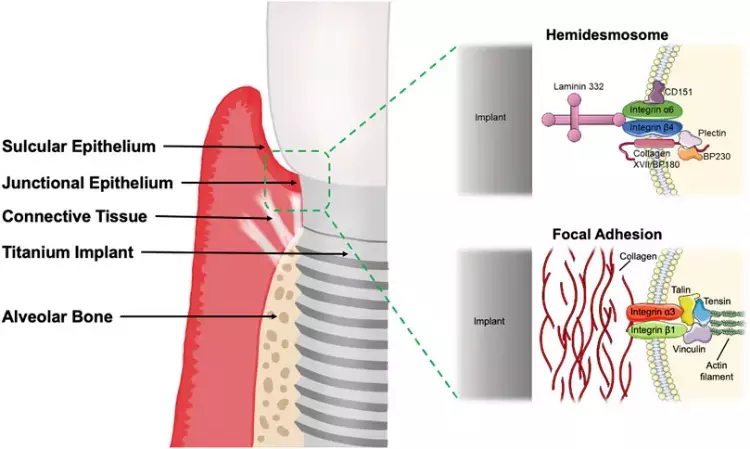- Home
- Medical news & Guidelines
- Anesthesiology
- Cardiology and CTVS
- Critical Care
- Dentistry
- Dermatology
- Diabetes and Endocrinology
- ENT
- Gastroenterology
- Medicine
- Nephrology
- Neurology
- Obstretics-Gynaecology
- Oncology
- Ophthalmology
- Orthopaedics
- Pediatrics-Neonatology
- Psychiatry
- Pulmonology
- Radiology
- Surgery
- Urology
- Laboratory Medicine
- Diet
- Nursing
- Paramedical
- Physiotherapy
- Health news
- Fact Check
- Bone Health Fact Check
- Brain Health Fact Check
- Cancer Related Fact Check
- Child Care Fact Check
- Dental and oral health fact check
- Diabetes and metabolic health fact check
- Diet and Nutrition Fact Check
- Eye and ENT Care Fact Check
- Fitness fact check
- Gut health fact check
- Heart health fact check
- Kidney health fact check
- Medical education fact check
- Men's health fact check
- Respiratory fact check
- Skin and hair care fact check
- Vaccine and Immunization fact check
- Women's health fact check
- AYUSH
- State News
- Andaman and Nicobar Islands
- Andhra Pradesh
- Arunachal Pradesh
- Assam
- Bihar
- Chandigarh
- Chattisgarh
- Dadra and Nagar Haveli
- Daman and Diu
- Delhi
- Goa
- Gujarat
- Haryana
- Himachal Pradesh
- Jammu & Kashmir
- Jharkhand
- Karnataka
- Kerala
- Ladakh
- Lakshadweep
- Madhya Pradesh
- Maharashtra
- Manipur
- Meghalaya
- Mizoram
- Nagaland
- Odisha
- Puducherry
- Punjab
- Rajasthan
- Sikkim
- Tamil Nadu
- Telangana
- Tripura
- Uttar Pradesh
- Uttrakhand
- West Bengal
- Medical Education
- Industry
Prediabetes and poorly controlled type-diabetes may increase risk of peri-implant diseases, States meta-analysis

Prediabetes and poorly controlled type diabetes may increase the risk of peri-implant diseases, states meta-analysis suggests published in the Journal of Dentistry.
The study answers the PECO question: “In adults with dental implants (P), do subjects suffering from type-2 diabetes or prediabetes (E) have worse peri-implant conditions (O) than subjects without type-2 diabetes and prediabetes (C)?”. Prediabetes (5.7–6.4 % HbA1c), and the different qualities of glycemic control in type-2 diabetes; well-controlled (>8 % HbA1c), and poorly controlled (>8 % HbA1c) individuals; were classified according to the recommendations of the American Diabetes Association. An electronic search in the MEDLINE, Embase, and Cochrane libraries were conducted without any filters or language restrictions. Additionally, manual search of the reference lists were carried out to identify all relevant articles. Eligibility criteria were cohort, case-control and cross-sectional studies that answerd our PECO question with at least 1 year of follow-up. From a total of 2660 records, 35 articles (1761 individuals) were included in the analysis. Meta-analytic difference in means for crestal bone loss was 1.2 mm [95 % CI=0.4; 2.1] in patients with prediabetes, 1.8 mm [CI=1.0; 2.7] in poorly controlled patients, whereas 0.4 mm [CI=-0.3; 1.1] in well-controlled individuals. Meta-regression showed that 1 % increase in HbA1c increased crestal bone loss by 0.24 mm. Within the limitations of the study, patients with poorly controlled type-2 diabetes or prediabetes may have worse peri-implant conditions compared to patients without diabetes and well-controlled type-2 diabetes. Well-controlled type-2 diabetes is not a risk indicator for peri-implant diseases. Clinicians should measure blood HbA1c levels when planning implant-supported restorations, thus patients with undiagnosed or poorly controlled type-2 diabetes can be identified, that allows for glycemic level adjustment prior to dental implant surgery, ensuring peri-implant health.
Reference:
Bulcsú Bencze, Bianca Golzio Navarro Cavalcante, Mario Romandini, Virág Róna, Szilárd Váncsa, Gábor Varga, Márton Kivovics, Bence Szabó, Gergely Agócs, Zoltán Géczi, Péter Hermann, Péter Hegyi, Dániel Végh. Prediabetes and poorly controlled type-2 diabetes as risk indicators for peri-implant diseases:A systematic review and meta-analysis, Journal of Dentistry. Volume 146, 2024, 105094, ISSN 0300-5712,. https://doi.org/10.1016/j.jdent.2024.105094. (https://www.sciencedirect.com/science/article/pii/S030057122400263X)
Dr. Shravani Dali has completed her BDS from Pravara institute of medical sciences, loni. Following which she extensively worked in the healthcare sector for 2+ years. She has been actively involved in writing blogs in field of health and wellness. Currently she is pursuing her Masters of public health-health administration from Tata institute of social sciences. She can be contacted at editorial@medicaldialogues.in.
Dr Kamal Kant Kohli-MBBS, DTCD- a chest specialist with more than 30 years of practice and a flair for writing clinical articles, Dr Kamal Kant Kohli joined Medical Dialogues as a Chief Editor of Medical News. Besides writing articles, as an editor, he proofreads and verifies all the medical content published on Medical Dialogues including those coming from journals, studies,medical conferences,guidelines etc. Email: drkohli@medicaldialogues.in. Contact no. 011-43720751


